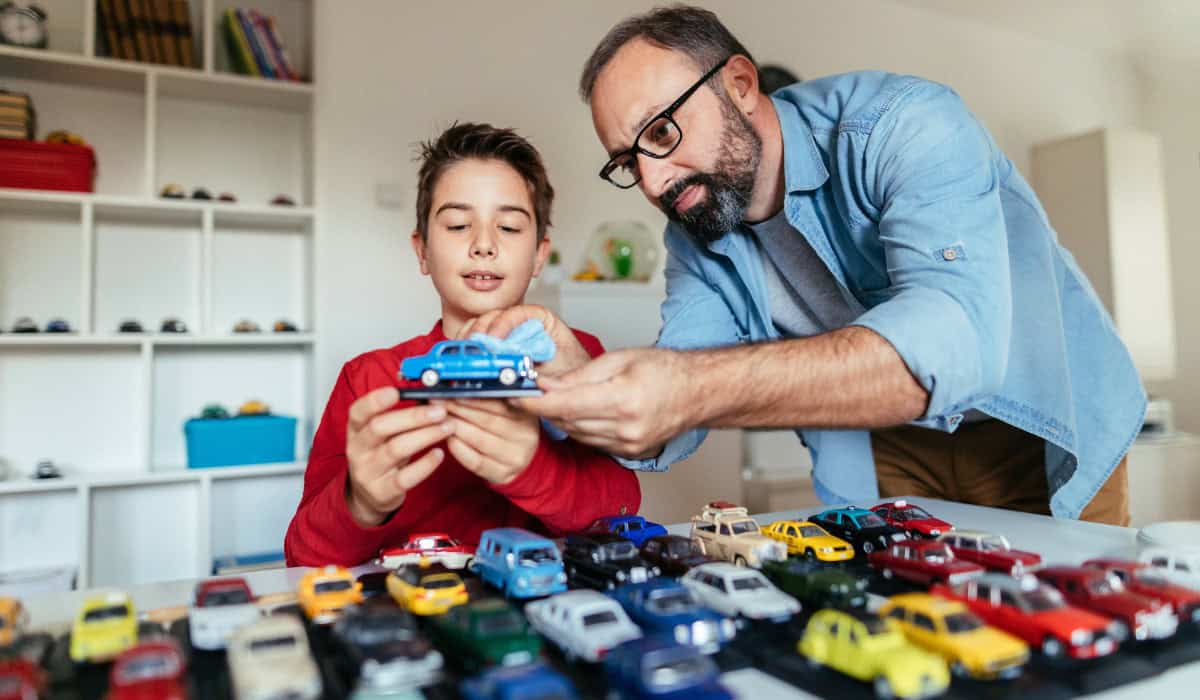
©mixetto via Canva.com
Will Adults Keep Buying Toys?
Riding a spike in interest in nostalgia coming out of the pandemic, consumers ages 18 and older accounted for more toy sales than any other age group in the first four months of 2024, even surpassing the historically dominant preschooler market crowd, according to Circana.
Circana, which tracks consumer trends based on POS data, said adult toy-buying has been a “hot topic since the pandemic and continues to be an opportunistic area,” pointing to a recent survey showing that 43% of adults purchased a toy for themselves during the past year, with the top reasons being for personal fun, socialization, and collecting.
Adults have always bought toys for themselves, fueled by the collector market for brands like Barbie and Hot Wheels. However, collecting took off during the height of the pandemic when people were looking for things to do while stuck in their houses, and it hasn’t slowed down.
“During the pandemic, when people were flush with cash and had time to spend at home whether with their families or alone, they wanted to reconnect with the toys that made them happy as kids,” James Zahn, editor-in-chief of industry trade publication The Toy Book, told CNN.
At the same time, existing toy collectors ramped up their spending.
“We’re talking everything, dolls, action figures and diecast vehicles,” Zahn said. “Outside of collectibles, boardgames, LEGO building sets, trading cards, which are extraordinarily hot again, are also firing up adult interest.”
The pandemic amplified strong interest in nostalgia, with the majority of grown-up toy buyers now defined as “kidults” who have a great fondness for video games, toys, books, movies, and fashion that remind them of their childhood.
A poll of 2,000 U.S. Gen-Zers and millennials taken last summer and commissioned by MGA Entertainment’s Miniverse, the popular miniature collectibles brand, found that 59% of people consider themselves kidults. Of the self-identified kidults, 59% frequently rewatch movies and shows from their childhood, 54% watch cartoons, and 49% remember specific products from their childhood. When asked what most motivates them to embrace being a “kidult,” respondents cited a sense of nostalgia (63%), entertainment (62%), and youthfulness (50%)
Around collecting, 38% of kidults have toys and collectibles on display in their home or at work, and 84% have held onto toys from their childhood, for an average of 16 years, according to the Miniverse survey. Among them, the most popular types of toys to hold onto included collectibles (63%), stuffed animals (61%), and dolls (40%).
Interest in collectibles has also been helped by platforms such as eBay that facilitate trading. Helping legitimize the trend are manufacturers such as LEGO, Mattel, Hasbro, and Funko, which create toys aimed at adults.
“The definition of adulthood has definitely evolved,” Jeremy Padawer, chief brand officer at toy company Jazwares, told CNBC. “What it used to mean, to be an adult, was to be a very upstanding, serious member of society. And to do that you had to demonstrate it intellectually, emotionally, in every other single way. Now we feel a lot more free to express our fandom as a part of our adulthood.”
Among the hot toy items for adults are Beanie Babies and Cabbage Patch Dolls plush toys that sparked frenzies in the ‘80s and ‘90s, but much of the buying tends to be by men seeking action figures, trading cards, and model sets tied to Star Wars, Transformers, Ghostbusters, Teenage Ninja Mutant Turtles, and other franchises from the same era.
“The fandom skews more male and more millennial and Gen X,” Jay Glatfelter, a collector and toy influencer under the moniker Geek.Dad.Life, told the New York Post. He sees the trend as an evolution from previous generations who collected knickknacks. Glatfelter said, “It’s the modern-day version of when our grandparents collected Hummel figures.”
Discussion Questions
What’s driving the trend toward adults purchasing toys?
Does it have staying power?
Are the ‘80s and ‘90s unique, or will future generations also likely be fascinated with products cherished in their youth?
